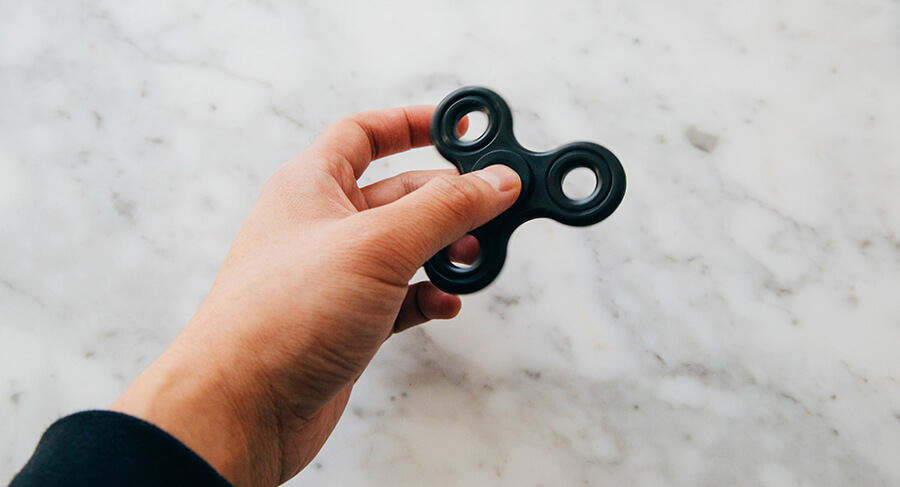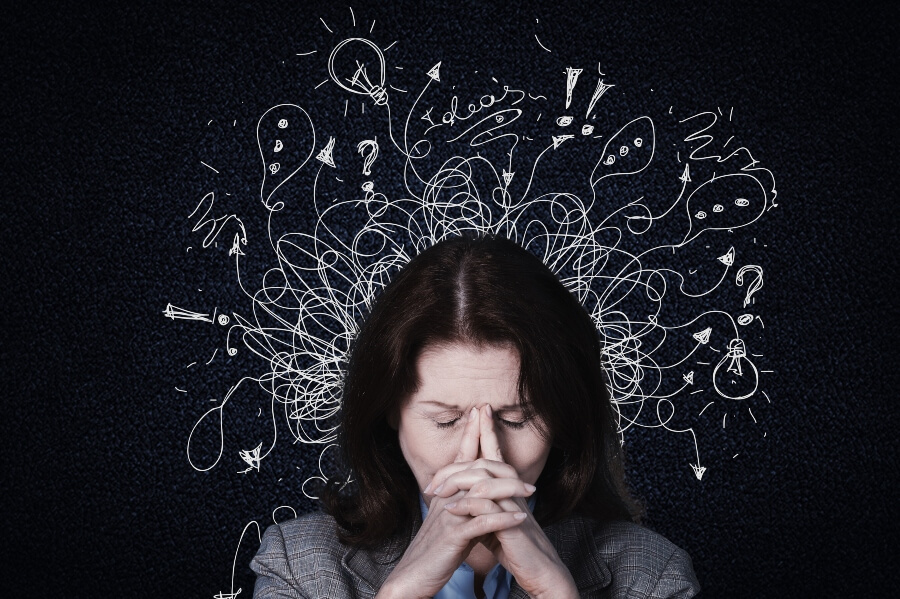I remember the first time someone put a name to it—to this way that I am. It was the ‘80s, and packs of teenaged girls roamed Morristown High swathed in mousse and Love’s Baby Soft. “Hey, Eyeballs!” Cherisse called out from the center of one of these packs. “I saw you in a movie last night. It was Ally Sheedy in The Breakfast Club, she’s goofy like you.”
For those of you who don’t have a photographic memory of useless information: She’s the one who shook dandruff out of her hair, whose lunch was a Pixie Sticks/Cap’n Crunch sandwich. Hm. Thanks, Cherisse.
I’d been called out in one way or another since first grade—how I looked, how I acted. For a long time, I thought being bullied had made me different. That I had developed my sense of humor and my ability to charm my way out of trouble as a defense mechanism.
But recently, I’ve been thinking the reverse might be true: Maybe I was actually different and that led to the bullying. If that were true, how might it change the story I tell about myself?
That’s exactly what I get to find out, right now, as I enter my second half-century. Because it turns out I was different all along.
Read More: These 5 Sites Will Help You Shake Off Some Stress
Navigating Adulthood, Not Feeling “Normal”

Distractions welcome. Image: Ferenc Horvath/Unsplash
As an adult, I managed to turn “goofy” into “quirky” and noodled around in a few different professions before settling into a magazine career where I swam in a sea of quirk. But even among the wacky crew, I knew something about me was off. My writing drew praise, but my editing lacked finesse, and—much worse—my ability to understand and manage office politics was always in the toilet.
I found it hard to concentrate; working at my desk, I’d lose focus and either chat with whoever passed by or wander around the halls, looking for a water-cooler conversation to join. It was hard to follow directions from my bosses sometimes, and the most important aspects of networking, in retrospect, went right over my head. At the time, I sensed there was a reason that I was never in that senior-level slice of the masthead, but I couldn’t get anyone to explain to me what it was.
What did I expect them to say? “You’re just annoying, Amy. You’re kind-hearted and funny and zany and effing annoying.” My friends and colleagues are blunt, but they aren’t assholes.
So I stumbled along. And my personal life was similarly iffy. My impulsivity led to much too much nonsense. I let boyfriends dictate my activities to the detriment of my professional life, big time. And my impulsivity played out in romantic relationships, too. I ended up in one relationship and then another and then married in a big fat wedding only to screw that up. I just figured this was me, and it was time to work on self-acceptance not becoming someone else.
I did ask my therapist if he thought I might have ADHD, but he said what everyone said in the ‘90s: “The only way to diagnose that is to take the medication. If it works, you have it.” And no responsible medical professional was interested in prescribing me amphetamines on a hunch. (It might have raised some eyebrows that cocaine put me to sleep, but I wasn’t discussing that with responsible medical professionals.)
Back to School—and a Big Lesson
Eventually, my un-brilliant magazine career ended, and I decided to go back to school for a nursing degree. Returning to the classroom was interesting. For one thing, every semester, I noticed the professor learned my name before anyone else’s, for the same reason this always happened—because she had to tell me to settle down. For another, I realized that I found science and math really interesting, but I couldn’t do particularly well with them.
I was challenging myself, and I was struggling. Really struggling. My therapist—a different one—asked if I thought I might have attention-deficit disorder.
“Well,” I snorted. “I’m not a 12-year-old boy.”
“Could have fooled me,” she said, arching her eyebrow at the pile of ripped-up Post-it notes that had been keeping my hands busy during our session.
And thus it was, with the promise of possible accommodations to my test-taking times as a carrot, that I trotted over to a psychoeducational testing center to find out, once and for all, if my behavior—variously referred to by people in my life as “flaky,” “idiotic,” and “ditzy,” that last time by a couples counselor in session—was something I really couldn’t control.
Reader, I flunked the test. Or I passed it. Anyway, turns out I have ADD. (Hold the H.)
Read More: Why Are Some of Us So Proud to Be Stressed Out and Overscheduled?
My Life Through a New Lens
Looking back over my life, it would be easy to become angry that nobody recognized that I had issues. There were signs all along the way, which we discovered as part of my diagnostic intake: A long record of a lifetime of symptoms is an important part of diagnosis. But I don’t have any learning differences—we checked, I’m actually scary-good at math but with a slow processing speed—and 40 years ago, they just didn’t know about such things.
Instead, I’ve had to mourn the “what could have been” possibilities. I might have had a longer magazine career. I might have gotten successfully married earlier. I might not be starting a new, challenging career in midlife.
“That often happens, that you feel like there were lost years,” says Peg Dawson, Edd, NCSP, of the Center for Learning and Attention Disorders in Portsmouth, New Hampshire, where she specializes in the assessment of attention disorders. “And it makes sense to acknowledge the impact this had on your life and to forgive yourself and others.” For our generation, ADD “wasn’t commonly understood—there was a stereotype of someone bouncing off the walls, and we later discovered that girls don’t present that way,” Dawson notes.
But even though the mourning is sad, my world has opened up spectacularly since the diagnosis. The educational trend these days encourage students to switch their thinking from a “closed mindset” to an “open mindset”—rather than saying, “I’m bad at math,” they are encouraged to say, “I find math challenging,” which puts them on a road to doing better. It may seem like a minor difference, but it stresses being on the road to success, which is so much more productive.
Could You Also Be ADD?

Fidget spinners: They’re not just for kids anymore. Image: @charlesdeluvio/Unsplash
But what if you’re not going back to school, and you think adult ADD might apply to you, too? Should you seek a diagnosis?
Maybe not. “If you’ve figured it out and managed your life to the extent that you’re able to manage home, work, and social life, then there’s nothing to treat,” says Dr. Lenard Adler, MD, director of the Adult ADHD at NYU Langone Health in New York. “But that’s the minority. Adults with ADHD typically lose more jobs, have lower incomes, have a harder time quitting habits like cigarettes.”
And a lot of times, you’re not the one frustrated. “If, as an adult, you have been getting feedback from your loved ones or co-workers that you have habits that get in the way of your productivity or make it hard to get along with other people, that’s a red flag,” Dawson adds.
The scary thing for women our age, though, is when we feel like we’ve always been able to manage this absent-mindedness, this distractibility—and suddenly can’t. We instantly worry about dementia, seeing ourselves turning into Julianne Moore in After Alice. The “menopause brain” that we all nervously joke about, coupled with attention issues, can leave us in need of serious support.
How to Get Help
- The first step, say Dawson and Adler, is to find a psychologist with experience treating people with ADD/ADHD to do a detailed intake. If you can’t find a therapist, ask your doctor to do it and recommend the resources at the website ADHDinAdults.com. Don’t let them brush off your concerns, which happens too often.
- Know that depression is a common side-effect of dealing with undiagnosed ADHD. You may find that once you treat it, the ADD/ADHD becomes more apparent, so the first step might include an antidepressant.
- Figure out where your deficits lie and how to manage them on a daily basis. For adults, that often means mindful meditation at least once a day—the difference can be startling if you stick with it. (I can’t, so far, even with Andy from Headspace and his sexy accent.)
- Consider hiring a life coach who specializes in ADHD to help you unpack your habits and develop solutions. I took this step after I moved out of our old house and was revolted by the clutter. I simply could not allow my family to return to that level of chaos. I found my helper by searching the CHADD website for ADHD coaches; they can also be found in the ADDitude Magazine directory and the ADHD Coaches Organization. It’s expensive, but you can ask about sliding scales or search for a coach who’s not yet certified and needs to build up more hours. (Or just see your coach less often, which was what I opted for.)
- CBT (Cognitive Behavioral Therapy) is extremely useful as well. It’s different from traditional talk therapy: rather than working through emotions, it sets specific goals to change the negative thinking that results from a lifetime of people telling you you’re a ditz. Your coach may work in conjunction with a therapist.
- Yes, medication can be part of the plan. For older adults who may have high blood pressure issues, stimulants are not the drug of choice. There are, at press time, three options to treat ADHD with a non-stimulant medication: Intuitiv (guanfacine), Kapvey (clonidine), and Strattera (atomoxetine), and they work in vastly different ways on different receptors. I tried two before I settled on Strattera, which had an undramatic but definite effect on my behavior: I am now able to perceive the clutter before it builds up, identify my procrastination rituals, and turn my attention to tasks with less of a fight.
I may not be able to see ADD as a blessing, as so many have suggested, but I am able to forgive myself for the ways it slowed me down. And I love how the wild personalities in my support groups mirror mine and the way I can recognize my habits in other people—especially my fellow students, who usually know a lot more about ADD than I do—and gravitate toward them for mutual support.
“Better late than never” is almost as irritating as “sticks and stones may break my bones,” but it’s what I’ve got, and that’s going to have to be okay.





















0 Comments